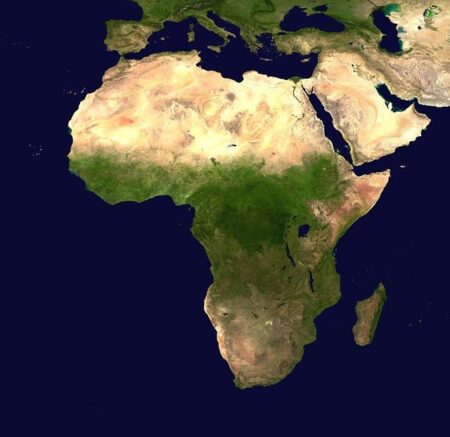Examining the Roles of Rwanda, Burundi, and Uganda in the DR Congo Conflict
Regional Involvement in Eastern DR Congo’s Turmoil
The persistent unrest in eastern Democratic Republic of Congo (DRC) is deeply intertwined with the actions of its neighboring states-Rwanda, Burundi, and Uganda. These countries share historical ties and ethnic connections with communities across the border, which complicates their involvement. Rwanda has frequently been implicated in supporting armed groups like the M23 rebel faction, a move often justified by Kigali as necessary for securing its borders and regional influence. Meanwhile, Burundi’s role tends to be less overt but includes military collaboration with Congolese forces to counter insurgent threats that jeopardize stability on both sides.
Uganda’s participation has drawn significant criticism due to allegations of illicit mineral extraction-resources vital to global technology supply chains-and accusations that it provides logistical support to various militias operating within eastern DRC. This economic dimension adds layers to Uganda’s engagement that go beyond security concerns.
- Rwanda: Accused of backing rebel militias and conducting cross-border security operations.
- Burundi: Engaged in military cooperation with DRC government forces and intelligence sharing.
- Uganda: Linked to resource exploitation activities and support for armed factions.
| Country | Main Activities | Underlying Objectives |
|---|---|---|
| Rwanda | M23 rebel support; border security missions | Maintaining regional influence; protecting ethnic kin |
| Burundi | Military collaboration with Congolese forces | Curbing insurgencies threatening cross-border peace |
| Uganda | Resource extraction; militia backing allegations | Pursuing economic interests; expanding regional sway |
The Humanitarian Toll Amid Regional Power Plays
The entanglement of these neighboring nations significantly exacerbates instability throughout eastern DRC. Rwanda’s alleged militia backing intensifies insecurity that displaces thousands annually. Burundi’s military presence sometimes restricts humanitarian access while deepening divisions within local communities. Uganda’s purported resource exploitation disrupts livelihoods by fueling conflict economies that undermine food security and essential services.
The United Nations estimates that over 5 million people have been displaced due to ongoing violence linked to these complex regional dynamics as of early 2024. Humanitarian organizations report that access to healthcare remains severely limited for many affected populations, while education systems are frequently interrupted by conflict-related disruptions.
| Country | Affected Actions | Humanitarian Impact |
|---|---|---|
| Rwanda | Security operations; militia involvement allegations | Mass displacement; increased insecurity for civilians |
| Burundi | Military presence; political maneuvering within DRC borders | Restricted humanitarian aid access; social fragmentation within communities |
| Uganda | Cross-border incursions; mineral resource exploitation claims | Food shortages; disruption of local economies and livelihoods |
The intricate web of alliances and rivalries among these nations not only fuels conflict but also hampers coordinated humanitarian responses. Addressing these external influences is vital to improving both security conditions and aid delivery mechanisms across eastern DRC.
A Path Forward: Enhancing Diplomatic Dialogue and Regional Cooperation
The foundation for lasting peace lies in robust diplomatic engagement among Rwanda, Burundi, Uganda, and the Democratic Republic of Congo itself. Regional bodies such as the East African Community (EAC) and African Union (AU) must facilitate transparent communication channels that include all stakeholders-government representatives from DRC alongside international mediators-to build trust through consistent dialogue.
Key strategies to promote stability include:
- Create joint security patrols along shared borders aimed at curbing militia movements and illegal trafficking networks.
- Pursue collaborative economic initiatives designed to generate employment opportunities within vulnerable border communities.
- Implement real-time intelligence sharing systems to anticipate emerging threats promptly.< / li >
- Engage civil society organizations actively to foster grassroots backing for peacebuilding efforts.< / li >
< / ul >Stakeholder< / th > Proposed Role< / th > Expected Outcome< / th >
< / tr >
< /thead >Rwanda< / td > Lead facilitator for disarmament negotiations.< / td > Decrease in militia activity across conflict zones.< / td > Burundi< / td >< td >Strengthen joint border surveillance operations.< / td >< td >Improved monitoring leading to fewer cross-border attacks.< / td > Uganda< / td >< td                  Intelligence exchange & economic partnerships.
               < br />Early identification of threats & enhanced community resilience.
< D.R. Congo
< tb d sty le ="pa dd ing-10 px;">Host summits & implement agreed-upon strategies.
< tb d sty le ="pa dd ing-10 px;">Stabilized security environment & reinforced governmental control.
A sustained commitment from all parties involved is essential not only for mitigating violence but also for addressing underlying socio-economic grievances that perpetuate conflict cycles throughout this volatile region.
A Complex Crisis Demanding Unified Solutions
The ongoing crisis gripping eastern DR Congo remains heavily influenced by its neighbors’ strategic maneuvers-each driven by distinct political ambitions or economic interests. Rwanda’s focus on ethnic security concerns, Burundi’s efforts toward regional stability through military cooperation, and Uganda’s pursuit of resource-driven influence collectively shape a fragile landscape marked by recurring violence and humanitarian distress. Recognizing these dynamics is indispensable when crafting comprehensive policies aimed at restoring peace within the Great Lakes region. Only through inclusive diplomacy paired with coordinated regional action can sustainable progress be achieved amid this multifaceted conflict.







